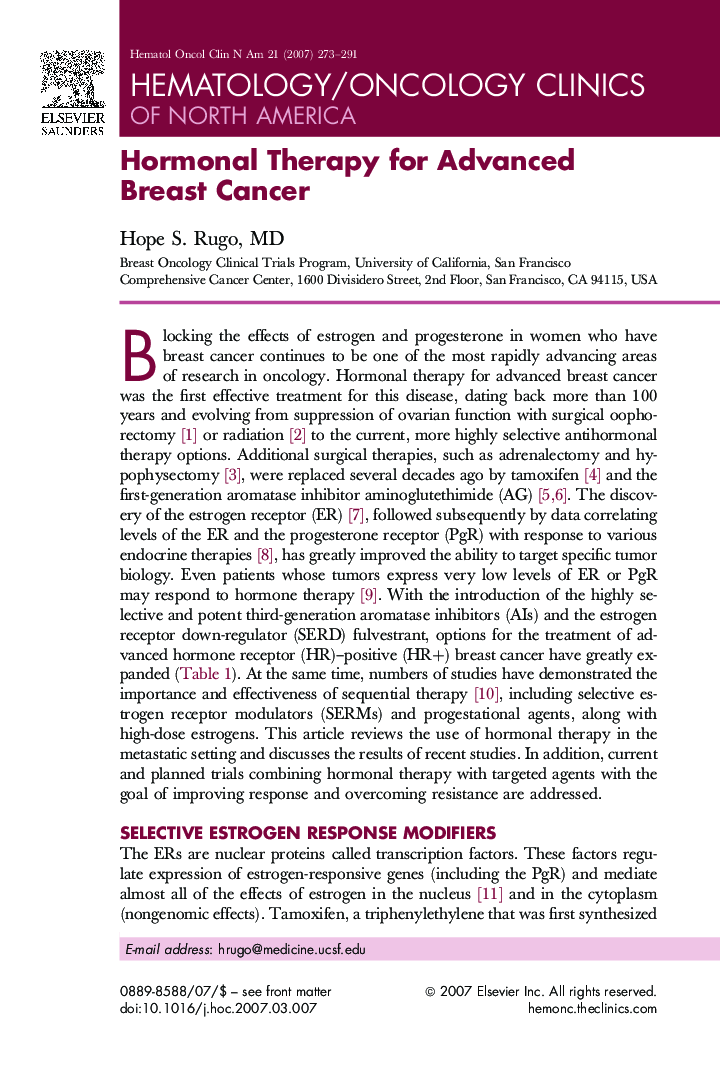| Article ID | Journal | Published Year | Pages | File Type |
|---|---|---|---|---|
| 3332087 | Hematology/Oncology Clinics of North America | 2007 | 19 Pages |
Hormonal therapy for advanced breast cancer has evolved significantly in the more than 100 years since the first publications documenting the effect of ovarian ablation on advanced breast cancer in premenopausal women. Since that time, not only have we developed the methods to measure estrogen and progesterone receptors in cancer cells, but more recently we have understood that expression of these receptors determines response to hormone therapy. The availability of more selective antiestrogen therapies has changed and significantly improved the treatment options for women who have advanced hormone-responsive breast cancer. Current research is focusing on reversing resistance to hormone therapy with the addition of targeted biologic agents to standard hormonal treatment.
